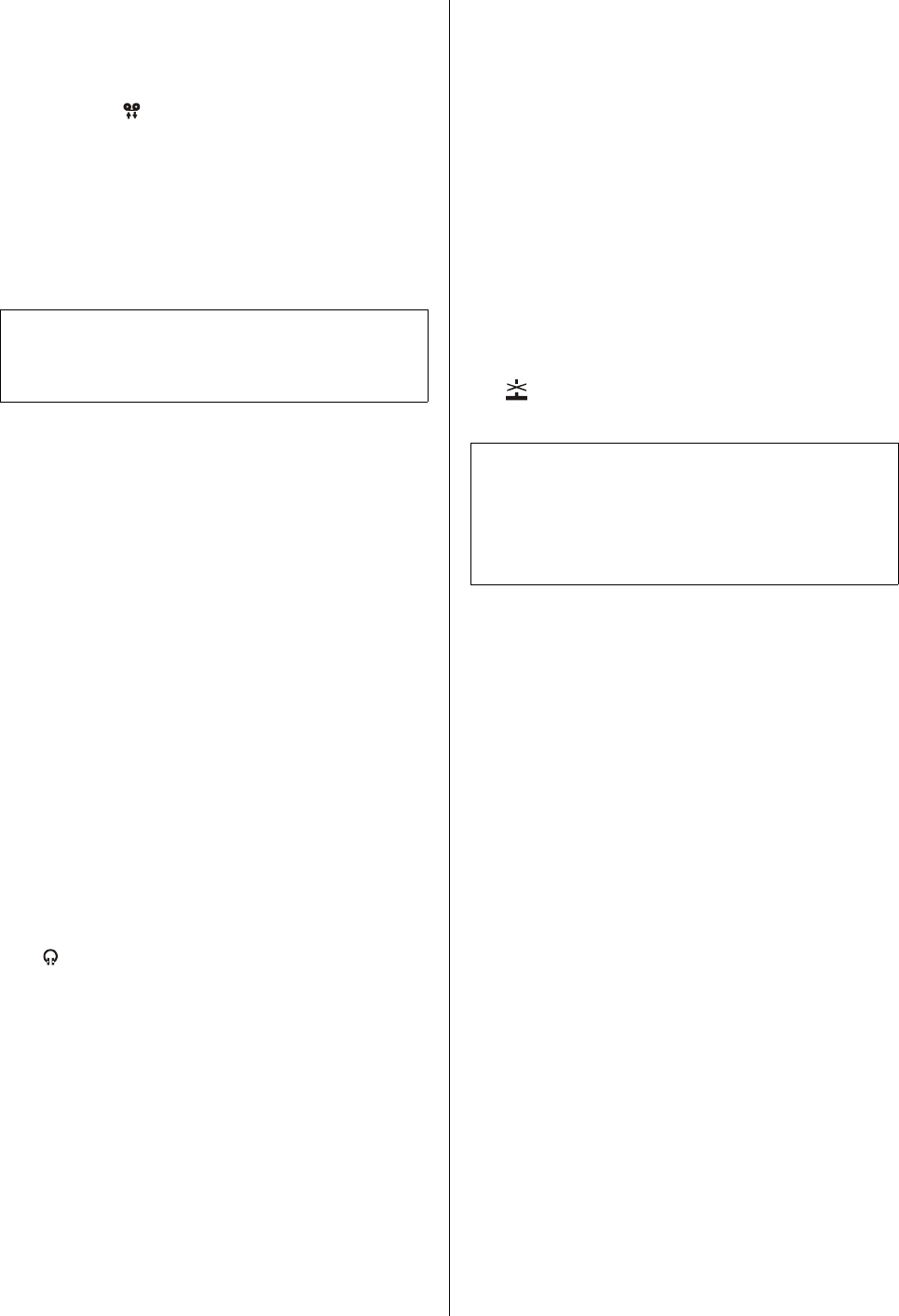
Front panel push-buttons
2
22
2
/
Hold the button pressed in to switch the P10’s recording
outputs on; the symbol lights up when the recording
outputs are switched on. You can now make a recording
of the programme to which you are currently listening;
this is carried out via the Recorder OUT sockets.
Pressing the
button briefly while recording is in
progress toggles between the original signal from the
source and the recorder’s tape monitor signal.
When the recording if finished, hold the
button
pressed in to switch the recording outputs off again.
Note:
It is not possible to isolate the earth connections of the
source devices while the recording outputs are switched
on; the FLOAT function is disabled.
When the main switch is at the S position, this button is
used to activate the appropriate function.
3
33
3
CHINCH OUT /
This button switches the asymmetrical pre-amplifier
output on and off.
When the main switch is at the S position, this button is
used to select and change a menu point.
4
44
4
XLR OUT /
This button switches the symmetrical pre-amplifier output
on and off.
When the main switch is at the S position, this button is
used to select and change a menu point.
5
55
5
PHO
This button switches the headphone output on and off.
The symbol appears on the screen when the
headphone output is switched on.
6
66
6
LOUDN / FLOAT
The amplifier is equipped with a volume-dependent tone
control (LOUDNESS) circuit, which compensates for the
frequency-dependent sensitivity of the human ear at very
low volume levels, due to the characteristics of aural
physiology.
A brief press of the
button switches the volume-
dependent tone control on and off.
The
symbol lights up on the screen when LOUDN is
switched on.
Holding the button pressed in switches Floating Ground
mode on. This mode results in improved reproduction
quality with many source devices.
For best possible function of this operation mode is it
advantageous to connect the signal ground of the
attached source devices to the ground screw of the P10.
The symbol lights up on the screen when FLOAT is
switched on.
Note:
• In case the 'FLOAT' operation mode is used, please
connect the source device and the P10 with a separate
ground lead (see 'wiring diagram, Appendix A').
• If interference occurs (audible hum) with FLOAT
switched on, please switch over to normal operation.
Volume and balance controls
7
77
7
BAL
(Balance-Regler)
The balance control enables you to vary the level
between left and right channels, e. g. to cope with
asymmetric speaker locations.
To avoid any adverse effect on the sound, the balance
range is limited to 6 dB. It is never desirable to reduce
the volume of one stereo channel to zero.
• The level of amplification is the same on both channels
when the control is at the centre position.
• Rotating the control clockwise offsets the stereo centre
to the right.
• Rotating the control anti-clockwise offsets the stereo
centre to the left.
8
88
8
VOLUME
Infinitely variable adjustment of the playback level,
employing a high-quality, ultra close-tolerance quadruple
potentiometer.
Rotating the control clockwise increases the volume.
Turning the control anti-clockwise decreases the volume.
28


















